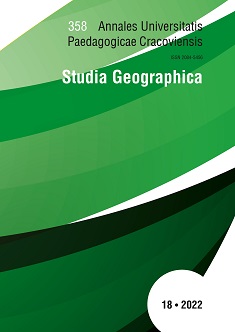Kultura islamu w kształceniu geograficznym w Polsce jako egzemplifikacja koncepcji „geografii ciszy”
The Islam culture in geography education in Poland as an exemplification of the concept of “the geography of silence”
Author(s): Agnieszka Świętek, Kamila BrusikSubject(s): Applied Geography, School education, Sociology of Education, Sociology of Religion
Published by: Wydawnictwo Uniwersytetu Komisji Edukacji Narodowej w Krakowie
Keywords: geography of silence; Islam culture; Islam; civilization trends; geographic education; textbooks; education content;
Summary/Abstract: The main goal of education, including geographic education, is to ensure comprehensive development for the next generation and to prepare them for adult life. The shape of the future in which the next generations, those of Zet and Alpha, will live, is shaped by long-term civilization trends. Contemporary Western civilization is undergoing progressive trends, including liberalization, secularization, modernization and globalization. If geography wants to meet the main objectives of education, then the definition of these objectives and the selection of content for their implementation has to take into account the indicated civilization trends. In this context, the content of education in the field of cultural geography becomes very important. The concept of “geography of silence”, developed in the mid-twentieth century by American geographers, implies the deliberate omission or marginalization of certain areas of geographical knowledge on maps and other vehicles of geographic information, in particular those published by state authorities. In this article, their authors present the results of research on the “geography of silence” as it appears in geographic education in Poland—especially as it relates to Islamic culture. Her aim was to answer the questions: Does formal, compulsory geographic education in Poland provide students the opportunity to acquire reliable knowledge about Islamic culture? And is the knowledge provided sufficient to prepare the next generation for living in the multicultural society towards which Europe is heading in accordance with current civilization trends? An analysis of the content of education in core curricula and methods of presenting Islamic culture in school textbooks show that current education methods are not sufficient.
Journal: Annales Universitatis Paedagogicae Cracoviensis Studia Geographica
- Issue Year: 2023
- Issue No: 18
- Page Range: 36-57
- Page Count: 22
- Language: Polish

